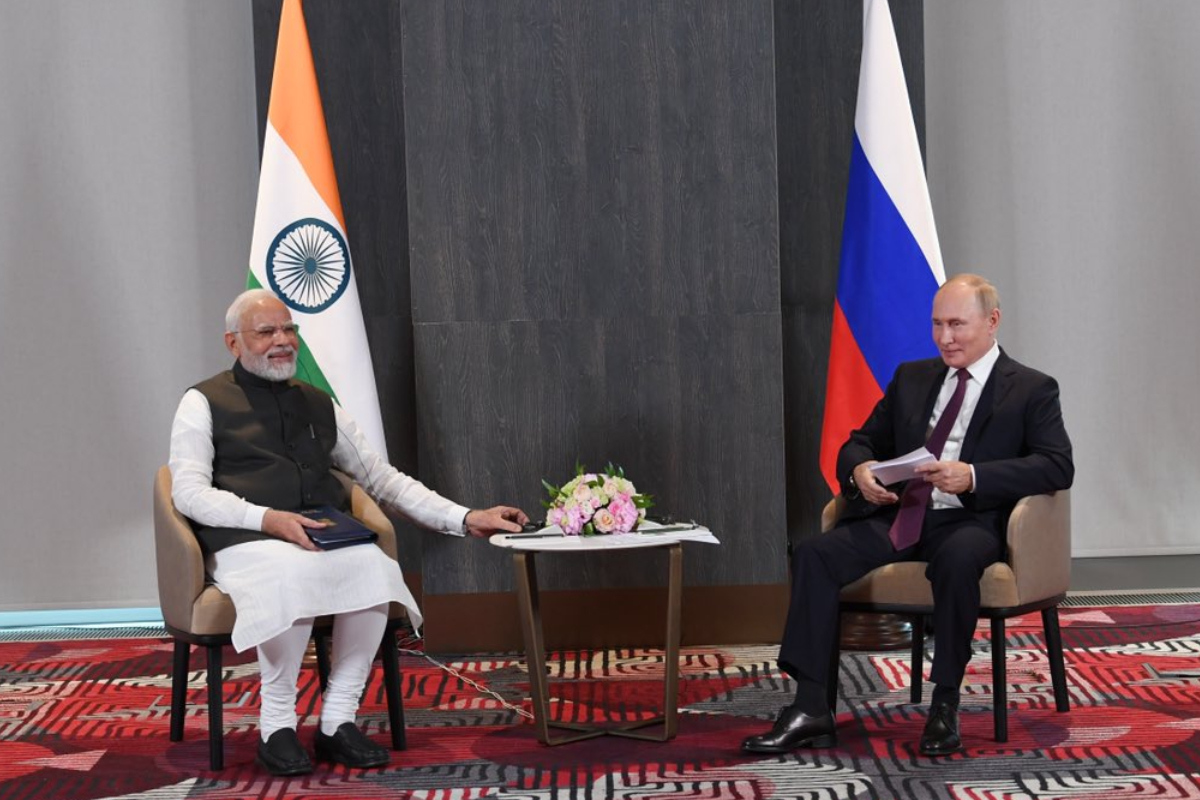In one of the most important meetings, Prime Minister Narendra Modi and Russian President Vladimir Putin discussed global food security, energy security and the availability of fertilisers during their meeting on the sidelines of the 22nd meeting of the Shanghai Cooperation Organization in the Uzbek city of Samarkand on Friday.
In a significant development, President Putin also said that he understands India’s non-partisan stance on the conflict in Ukraine.
“Had a wonderful meeting with President Putin. We got the opportunity to discuss furthering India-Russia cooperation in sectors such as trade, energy, defence and more. We also discussed other bilateral and global issues,” PM Modi tweeted after the meeting.
In their first in-person meeting since the war in Ukraine, PM Modi urged President Putin “for an early cessation of hostilities and the need for dialogue and diplomacy”, the Ministry of External Affairs said on Friday.
Meanwhile, talking about the traditional relationship between India and Russia, President Putin said, “Russian-Indian relations are developing, and they are characterised as a special and privileged strategic partnership and continue to develop actively. We are actively cooperating on international platforms, discussing all the situations that are developing in the world, including those that are sometimes unfavourable.”
While India maintained an independent stand in its reaction to the conflict in Ukraine, President Putin said that he understands India’s concerns on the issue.
“I know your position on the conflict in Ukraine, your concerns that you constantly express. We will do our best to stop this as soon as possible,” he said.
Putting the onus on Ukraine, President Putin said, “Unfortunately, the opposing side, the leadership of Ukraine, announced its refusal to continue negotiations and declared that they wanted to achieve their goals by military means. But nevertheless, we will always keep you informed of what is happening there.”
The Russian President on Friday during the SCO summit congratulated India on assuming the chairmanship of SCO for a year from Uzbekistan. “I would also like to wish every success to our Indian friends who are taking over the chairmanship today,” President Putin said.
President Putin also suggested the SCO initiate a special athletes’ body, which was supported by his close ally and Belarusian President Alexander Lukashenko. “We could think about creating an association of sports organisations under our association,” President Putin said.
Besides PM Modi and President Putin, President of China Xi Jinping, President of Kazakhstan Kassym-Jomart Tokayev, President of the Kyrgyz Republic Sadyr Japarov, Prime Minister of Pakistan Shehbaz Sharif, President of Tajikistan Emomali Rahmon and President of Uzbekistan Shavkat Mirziyoyev as heads of the SCO member state delegations, attended the summit.
President of Belarus Alexander Lukashenko, President of Iran Seyyed Ebrahim Raisi and President of Mongolia Ukhnaagiin Khurelsukh as heads of the SCO observer state delegations along with President of Azerbaijan Ilham Aliyev, President of Türkiye Recep Tayyip Erdogan and President of Turkmenistan Serdar Berdimuhamedov as guests of the presiding state Uzbekistan also attended the summit in Samarkand.
In addition to them, delegations representing several international organisations also turned up.
During his visit to Samarkand, President Vladimir Putin held a bilateral meeting with UN Under-Secretary-General Rosemary DiCarlo on Friday, the Kremlin said in a statement.
The SCO Heads of State Council adopted statements in response to climate change, on ensuring reliable, sustainable and diversified supply chains, and on ensuring global food security and international energy security.










